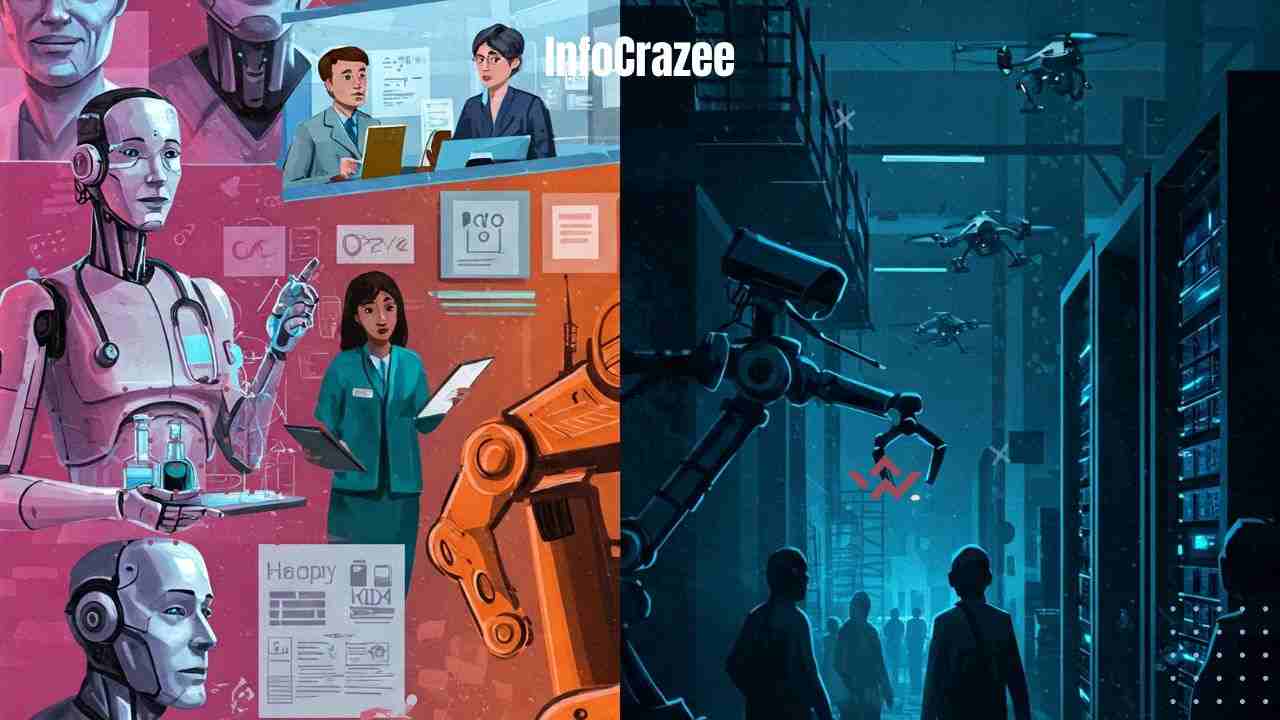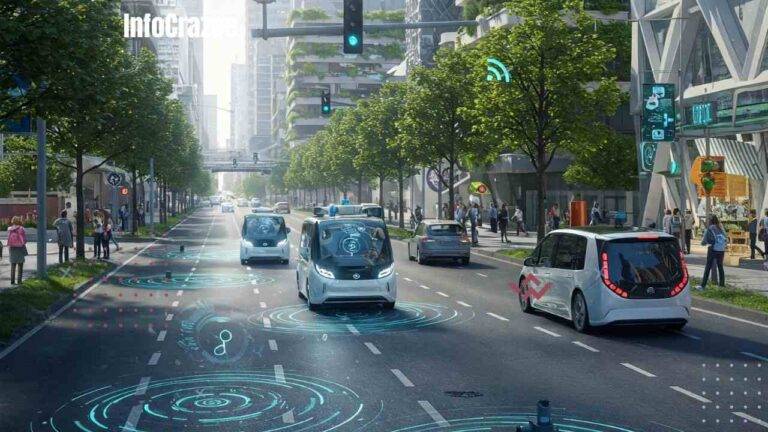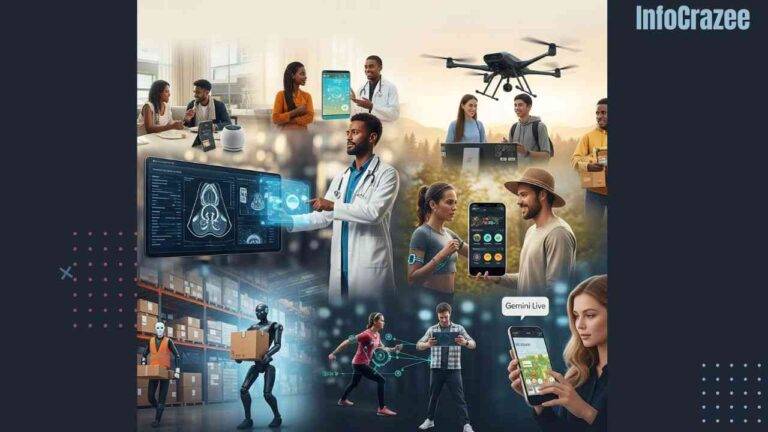The Big Ethical Questions Around Building Smarter AI
At Infocrazee, we believe technology should improve lives — but when it comes to artificial intelligence (AI), things can get a little tricky. As AI gets smarter and more powerful, it’s raising some really important ethical questions that we can’t afford to ignore. Let’s break it down in a simple, friendly way.
Why Ethics in AI Matters
AI isn’t just about robots doing chores or apps recommending your next movie. It’s getting involved in much bigger things like healthcare, hiring, law enforcement, and even government decisions. If AI systems aren’t built responsibly, they can accidentally cause harm — even when no one intended it.
Imagine a smart hiring tool that unintentionally favors one group of applicants over another. Or a facial recognition system that struggles to recognize people with certain skin tones. These real-world examples show why we need to think carefully about the ethics behind smarter AI.
Key Ethical Challenges in Building Smarter AI
1. Bias and Fairness
One of the biggest worries is bias. AI learns from data — and if that data reflects human prejudices (even unintentionally), the AI can pick up those same biases.
Example:
A resume-screening AI trained mostly on resumes from one gender or ethnicity might end up favoring those applicants without even realizing it.
What’s Being Done:
Tech companies are working to “de-bias” their training data and audit their AI tools regularly. But it’s a tough problem that needs constant attention.
2. Privacy and Data Protection
AI often needs tons of data to work well — and that usually means personal information about real people. This raises big questions like:
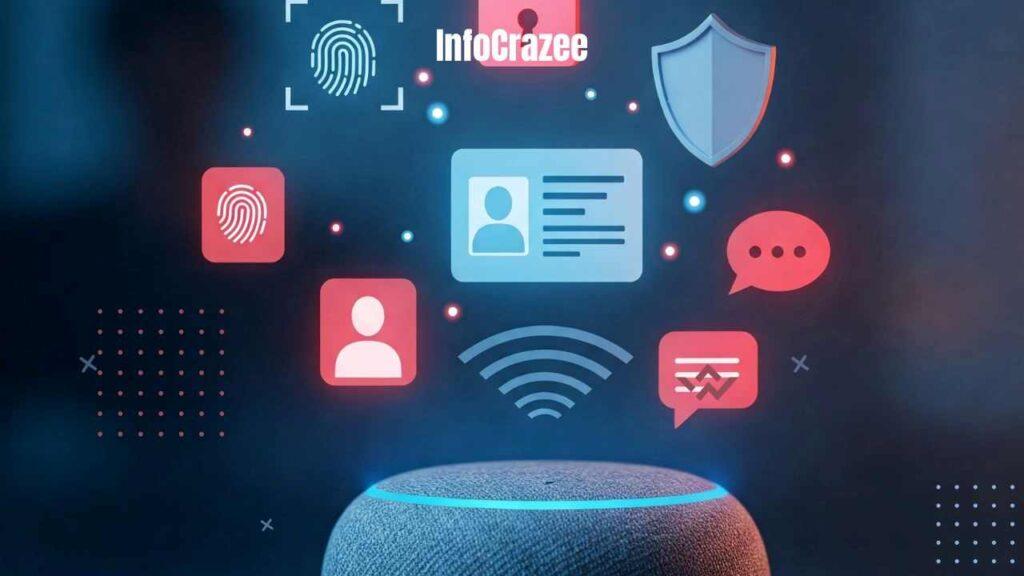
- Who owns your data?
- How much should companies know about you?
- What happens if your data gets into the wrong hands?
Real-World Example:
Smart speakers that “accidentally” record conversations have made people rethink how much they trust in-home devices.
The Goal:
Clear consent, strong data protection, and strict rules about how personal information is used.
3. Accountability: Who’s Responsible When Things Go Wrong?
If an AI system makes a mistake, who’s at fault? The programmer? The company that used the AI? The AI itself?
Right now, our laws aren’t fully ready to answer these questions.
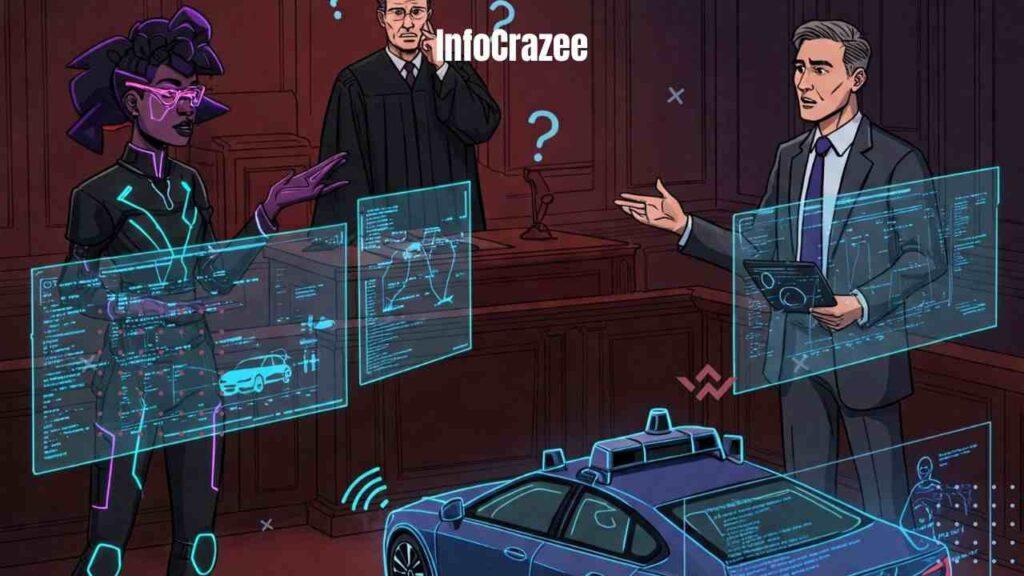
Example:
Imagine a self-driving car gets into an accident. Should the blame fall on the car’s maker, the software developer, or the car’s owner?
Future Focus:
We need updated laws and clear guidelines to make sure accountability is always tied to human decision-making.
4. AI and Job Losses
Smarter AI can automate tasks that humans used to do. While this can make companies more efficient, it also raises real fears about job loss.
Example:
Industries like transportation, customer service, and even journalism are already seeing some tasks handed over to AI systems.
Positive Angle:
New types of jobs will also emerge — we’ll need people to manage, maintain, and guide AI systems. Preparing workers for these new roles is key.
5. The Big Picture: AI’s Impact on Society
Finally, we need to think beyond individual cases and ask:

- How will AI change society?
- Will it widen the gap between rich and poor?
- Will it strengthen democracy — or weaken it?
Real-World Concern:
Some experts warn that without smart regulations, AI could be used to spread misinformation, manipulate public opinion, or create surveillance states.
What We Can Do:
Push for transparency, encourage diversity in AI development, and build systems that truly serve people — not just profits.
Wrapping It Up
AI is powerful — and with great power comes great responsibility (yes, Spider-Man’s uncle was onto something!).
By asking tough questions today and building AI carefully, we can create a future where technology helps everyone live better, fairer, freer lives.
At Infocrazee, we’re excited about what AI can do — but we also believe it’s up to all of us to make sure it’s done the right way.
FAQs
Q1: Can AI ever be completely unbiased?
Answer:
Probably not 100%. AI is trained by humans, and since we all have biases, some may slip into AI systems too. However, with careful design, diverse data, and regular audits, we can make AI as fair as possible.
Q2: How can we protect our privacy in an AI-driven world?
Answer:
Be smart about what data you share. Support businesses and policies that prioritize data protection. Look for apps and services that are transparent about how they use your information.
Q3: Should we be scared of smarter AI?
Answer:
Not scared — but definitely careful. Smarter AI offers amazing opportunities, but it also brings serious challenges. With thoughtful regulation, ethical development, and public awareness, we can enjoy the benefits while minimizing the risks.
